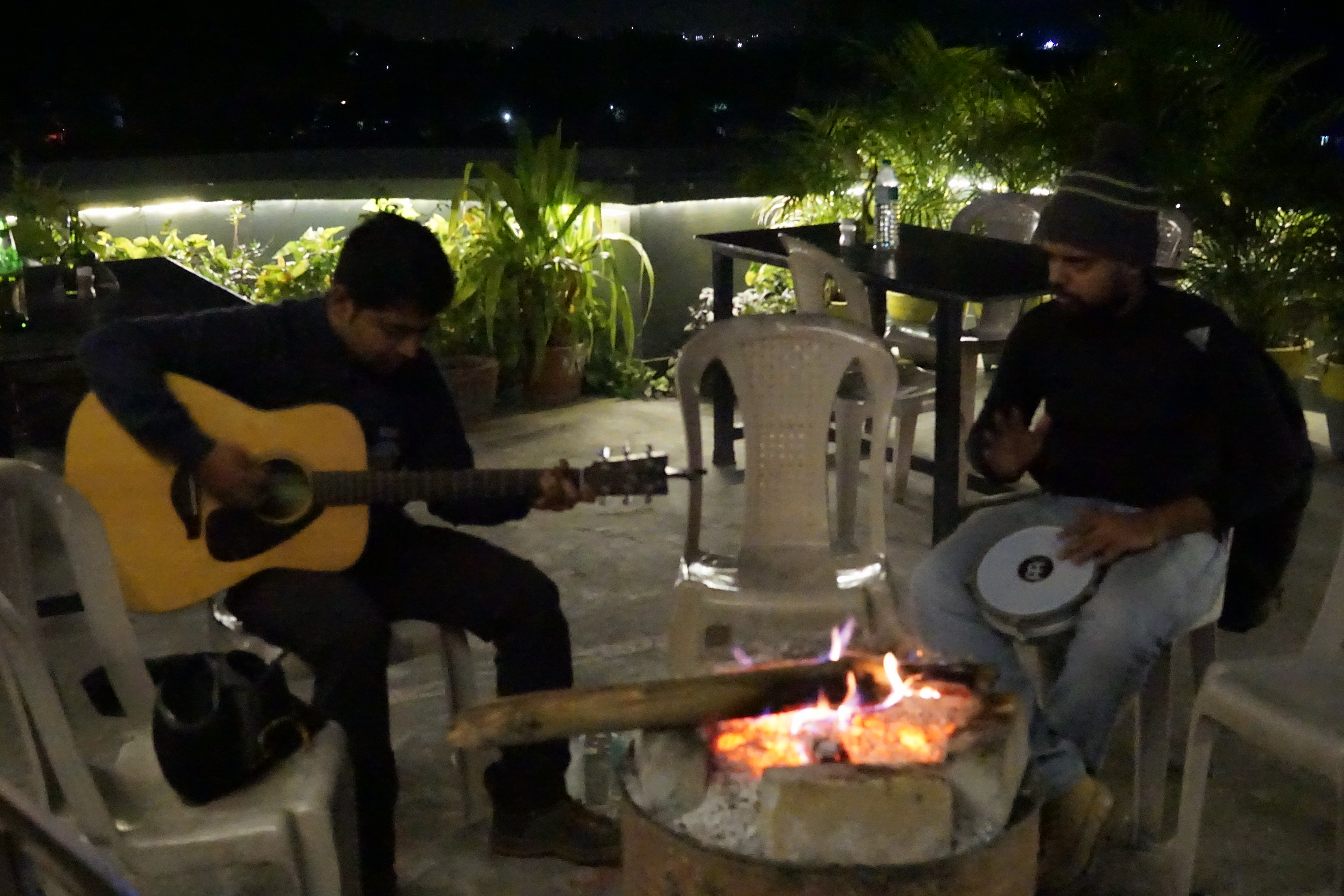Commotion of Bangalore to the Silence of Jolly Grant
One of the toughest things to do is to actually escape Bangalore on any day that is not a Sunday or a public holiday—something that I have experienced innumerable times and have become well accustomed to. After a few failed attempts at booking an airport taxi, I finally managed to grab hold of one Mr. Subramanya via Uber who agreed to take me to the airport only if I paid him in cash and also paid for the return toll fee. He was not the first Uber or Ola driver to complain about these radio taxi aggregators’ unfair billing and disbursing cycle. While the consumer pays less, the drivers have a hard time keeping up with the commitments that would ensure them of a decent return. This rift is even more apparent for fixed price transportation like airport drops.
A few hours prior to boarding the taxi, I had neatly arranged all my stuff on my bed and tallied everything against a list before stuffing them inside my rucksack and my daypack. Each time before a trip like this, I assure myself that I would not have to spend anything on apparel or equipment. However, I am yet to encounter an occasion where I have made good on my assurance.
The journey to Dehradun’s airport at Jolly Grant was an uneventful one. I slept for most of the time. I must have landed around 5:30 in the evening. The sudden feeling of a chill in air reminded me of the fact that my thermal protection was inadequate. I pulled out a woollen pullover from my daypack and waited patiently for my checked-in rucksack to arrive.
Onward to Rishikesh
Out of habit, I pulled out my phone and checked the maps. Jolly Grant was midway between Dehradun and Rishikesh. I knew that I had to get back to Dehradun at some point later in the trip. Right at that moment I decided to venture towards Rishikesh. I booked a cheap backpacker’s dorm called Bunk Stay on the internet near Lakshman Jhula without having a clue as to how to get there.
The main road—Dehradun-Rishikesh road—is about two kilometres from the airport. Prepaid taxis demanded one thousand and five hundred rupees, an exorbitant amount for Rishikesh. With my rucksack on my back and my daypack in my front, I walked towards the main road, hoping that I would find a bus for Rishikesh. In the mountains, darkness descends swiftly, accelerating its pace during the winters. While walking through the under-construction airport road that cut through a forest, I heard a bus drifting far away. At that point, I knew that I would make it to Rishikesh.
Once I was at the junction, I got to know that state-run buses did not stop there. I had to walk till Ranipokhri, a settlement about two kilometres from the junction to catch a bus or wait for a privately run vehicle. I was able to get on a Vikram, a three-wheeler auto rickshaw that had a higher passenger capacity than the ones manufactured by Bajaj or TVS. These vehicles form the bulk of public transportation in flatter regions of Uttarakhand where a higher-torque engine or a four-wheel drive is not a necessity. For just twenty rupees, I was able to travel fifteen kilometres until it dropped me at Rishikesh bus stand.
A quick check of maps showed me that I was still five kilometres from my destination. Vehicles ran till Laksman Jhula, after which I would have to walk the final kilometre to reach my destination. It was too late to get a shared vehicle. The minimum reservation price was one hundred and fifty rupees. I waited for sometime until a couple came along and decided to split the reservation fare. Once the Vikram dropped me at Lakman Jhula auto stand, I had to walk down till Lakshman Jhula, cross it and finally climb some obfuscated stairs to reach my destination.
Jamming with fellow musicians at Bunk Stay

My room in Bunk Stay. Look at all the bunk beds. Despite its resemblance to cheaper dormitories, the rooms and beds were very clean.
The rooftop cafe of Bunk Stay had an amazing view. It also had two guitars, one cajon and a bongo. Jonathan, a fellow bunker from Cape Town, South Africa, and Akshit, a long-distance biker from Delhi, joined me with a bongo and cajon respectively. Akshit played percussion for bands in Delhi. He taught Jonathan a few rhythm patterns that he used to accompany the impromptu jam session. We had a substantial number of people as our audience, including a few guys who had come to recruit some freshers from IIT Roorkee.
Later, during dinner, I chatted up with Jonathan. He had been travelling in India for the last eight weeks after leaving his job as a gardener back home. He told us about the drought in South Africa for which people have their water rationed and a nuclear power-plant accident (I was unable to trace the exact incident) that had reduced the power supply to that region resulting in scheduled power-cuts. Listening to his stories, I realised how little we know of things going on in this world.





